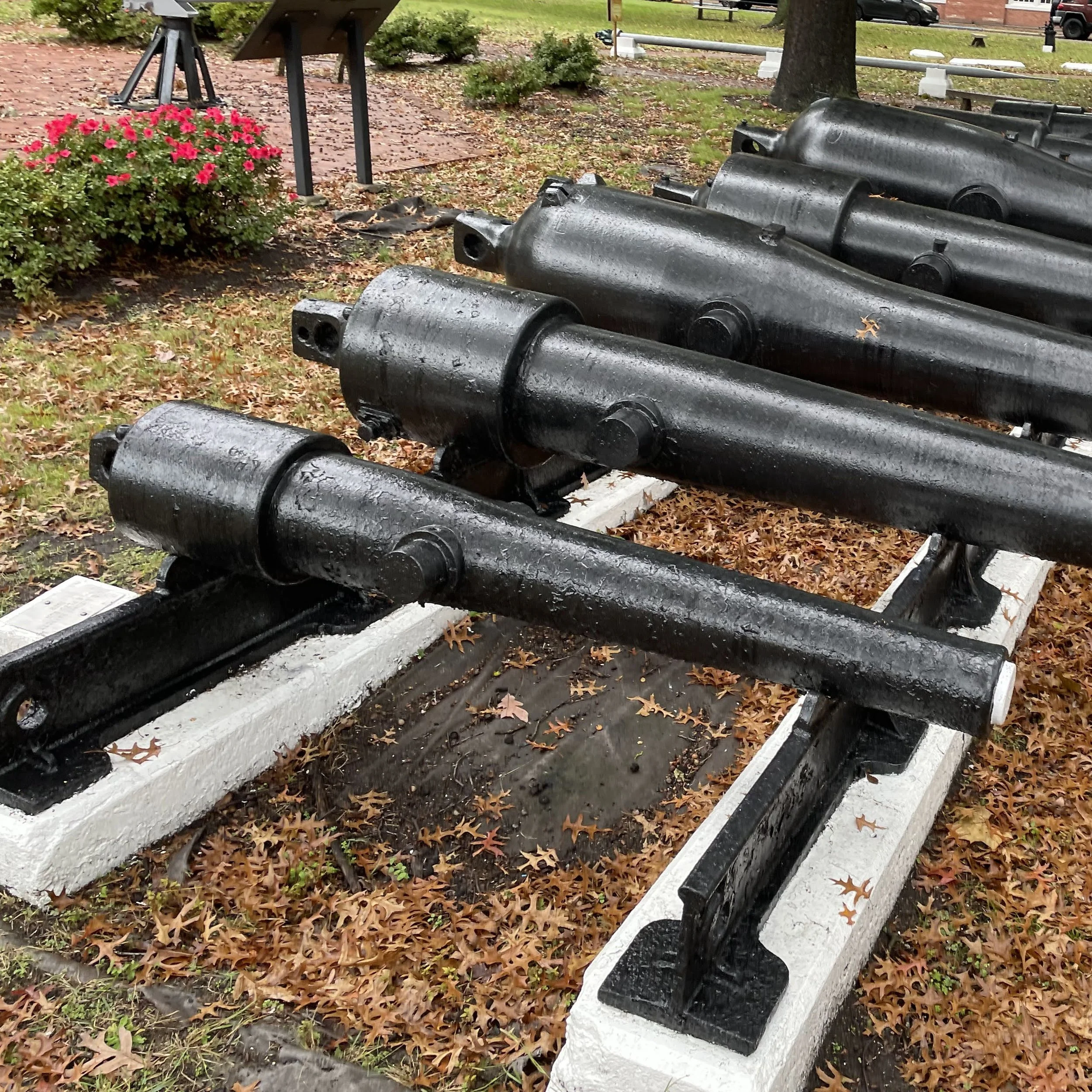
US Navy 20-Pounder Number 115 of USS Sumpter
A US Navy 20-Pounder, Registry Number 115, is displayed in Trophy Park at Norfolk Naval Shipyard. It was manufactured at West Point Foundry in 1862 and weighs 1,795 pounds. According to the research of Wayne Stark, Number 115 was carried aboard USS Sumpter which was accidentally sunk in a collision with the transport steamer General Meigs on June 24th, 1863.
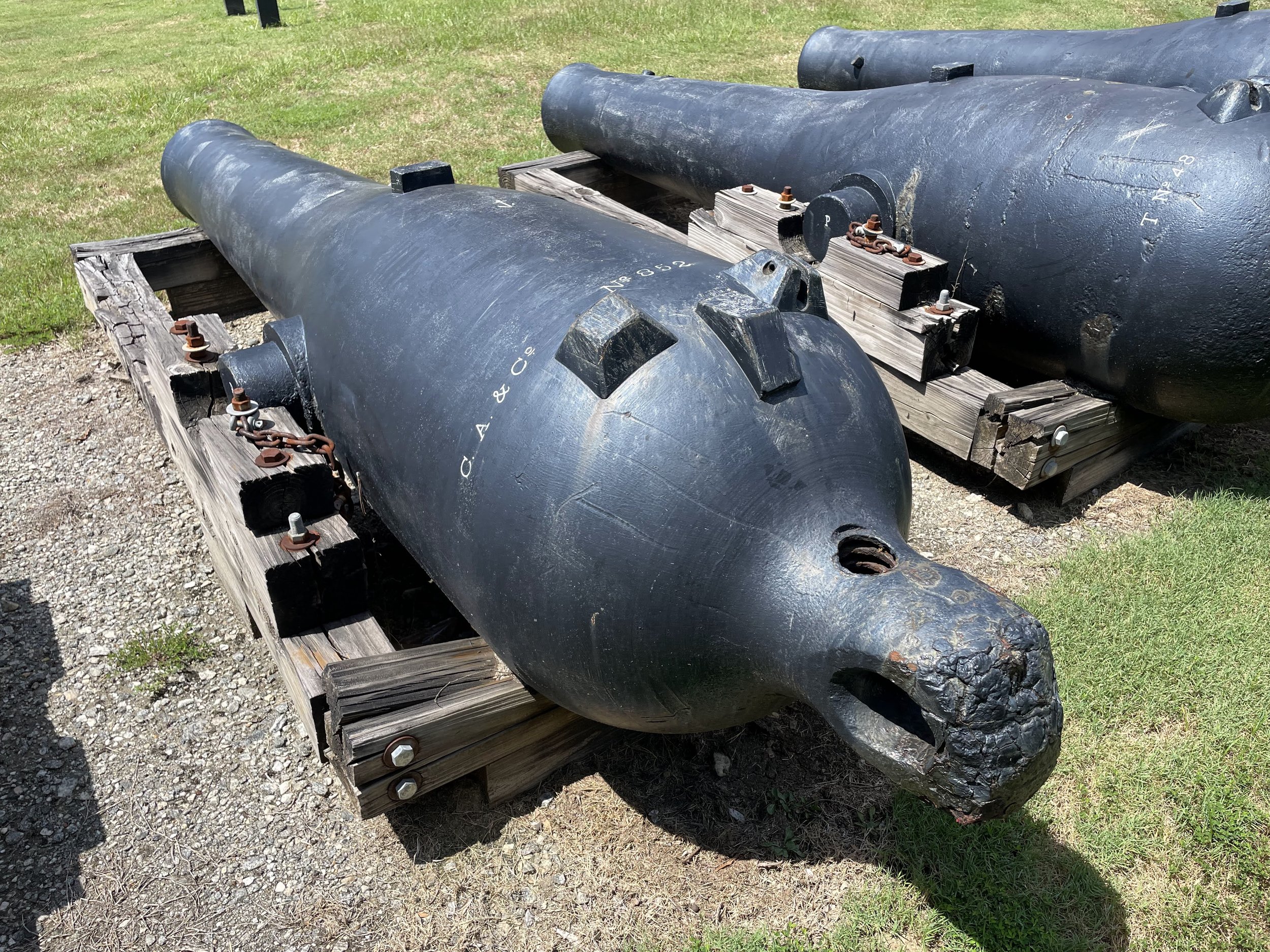
US Navy 9-Inch Dahlgren Number 852 of USS Minnesota
One of five US Navy 9-Inch Dahlgrens on display at the National Civil War Naval Museum in Columbus, Georgia is Number 852. Records show that it served aboard the frigate USS Minnesota from at least 1875.
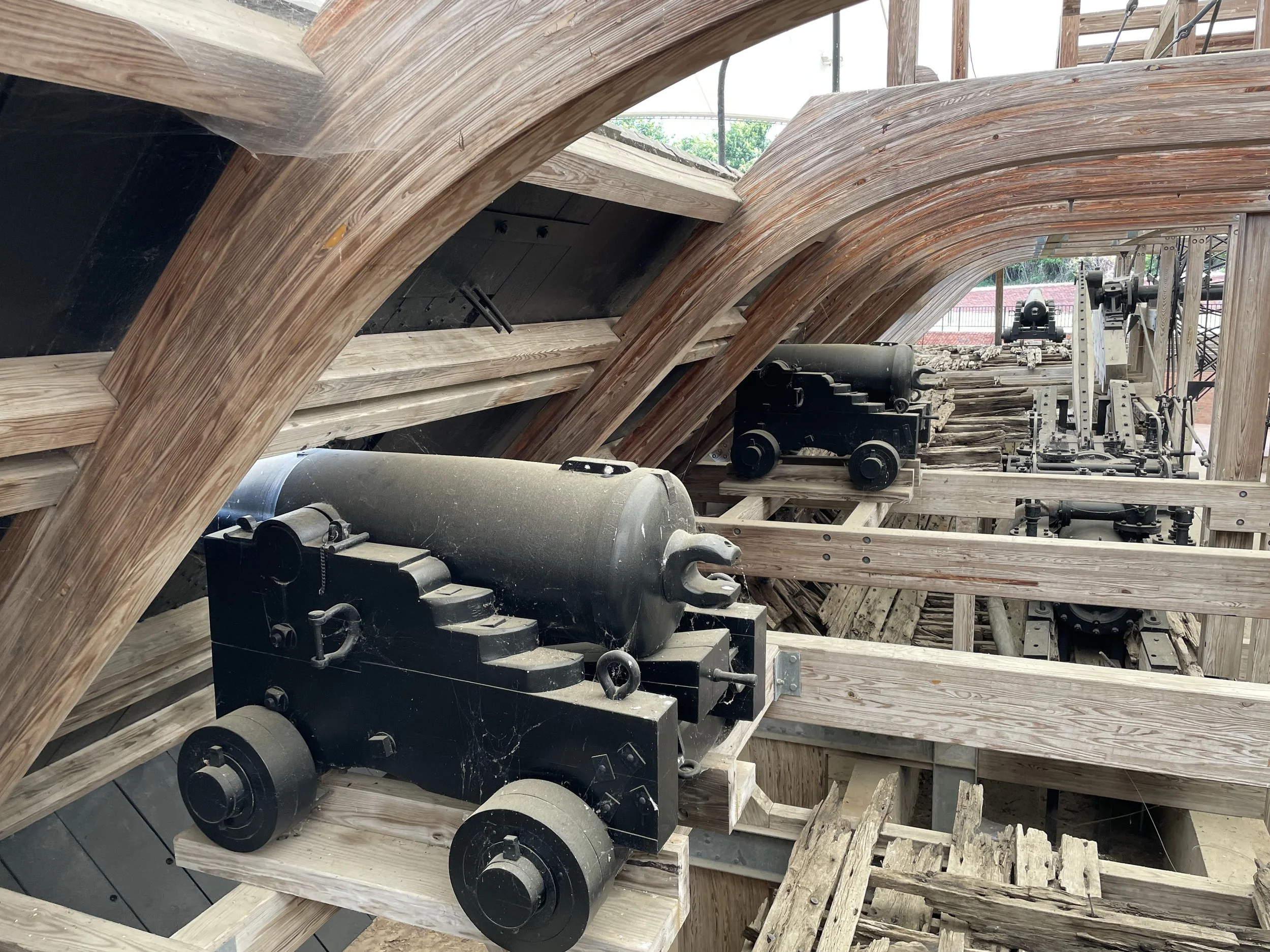
US Navy 32-Pounders of 42 Hundredweight Numbers 276, 226, and 280 of USS Cairo
US Navy 32-Pounders of 42 Hundredweight Numbers 276 and 226 are the number 3 and 4 guns on the starboard broadside of USS Cairo. Number 280 is the starboard gun on the stern.
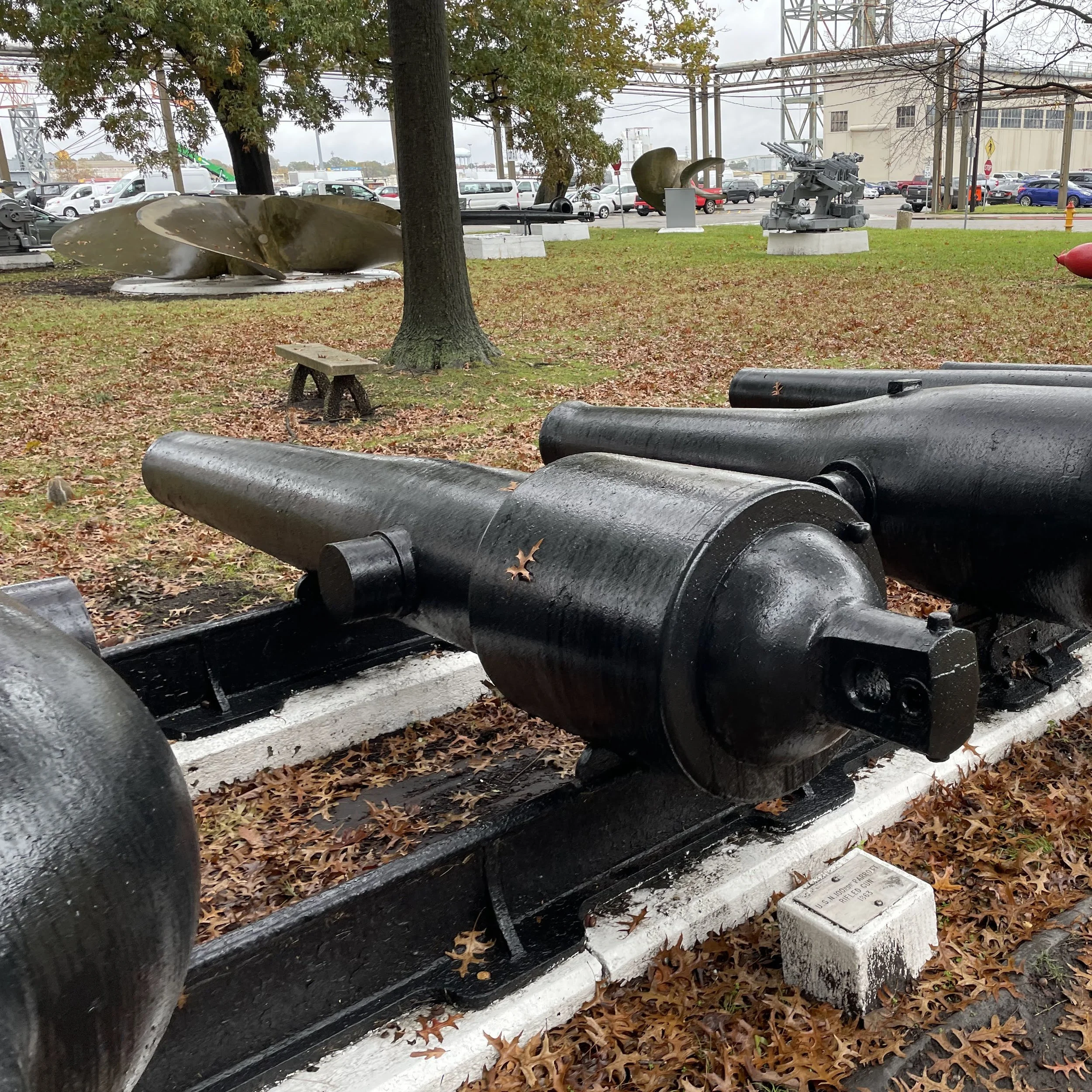
USS Navy 100-Pounder Parrott Rifle of USS Franklin
US Navy 100-Pounder Parrott Rifle, Number 165, is displayed in Trophy Park at Norfolk Naval Shipyard. Manufactured at West Point Foundry in 1863, Number 165 weighs 9,727 pounds. According to the research of Wayne Stark, Number 165 served aboard USS Franklin - likely from the time of her commissioning until at least 1872.
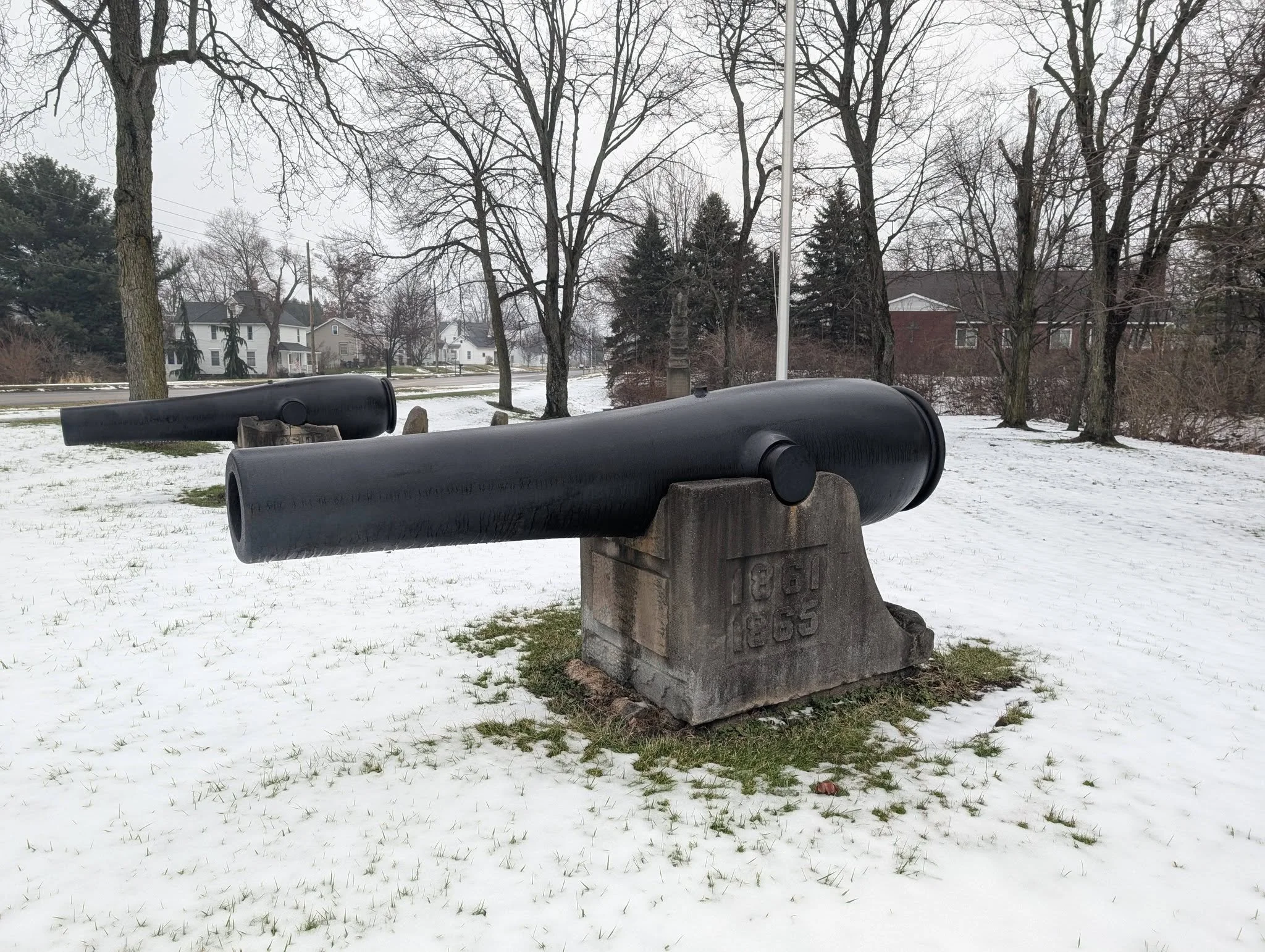
US Army 10-Inch Rodmans in Sullivan, Ohio
Two US Army 10-Inch Rodmans, Pattern 1861 are displayed in Sullivan, Ohio. Both were cast at Fort Pitt Foundry in 1865. They were placed as a monument to the "Dead Heroes of Sullivan Township” in 1906.
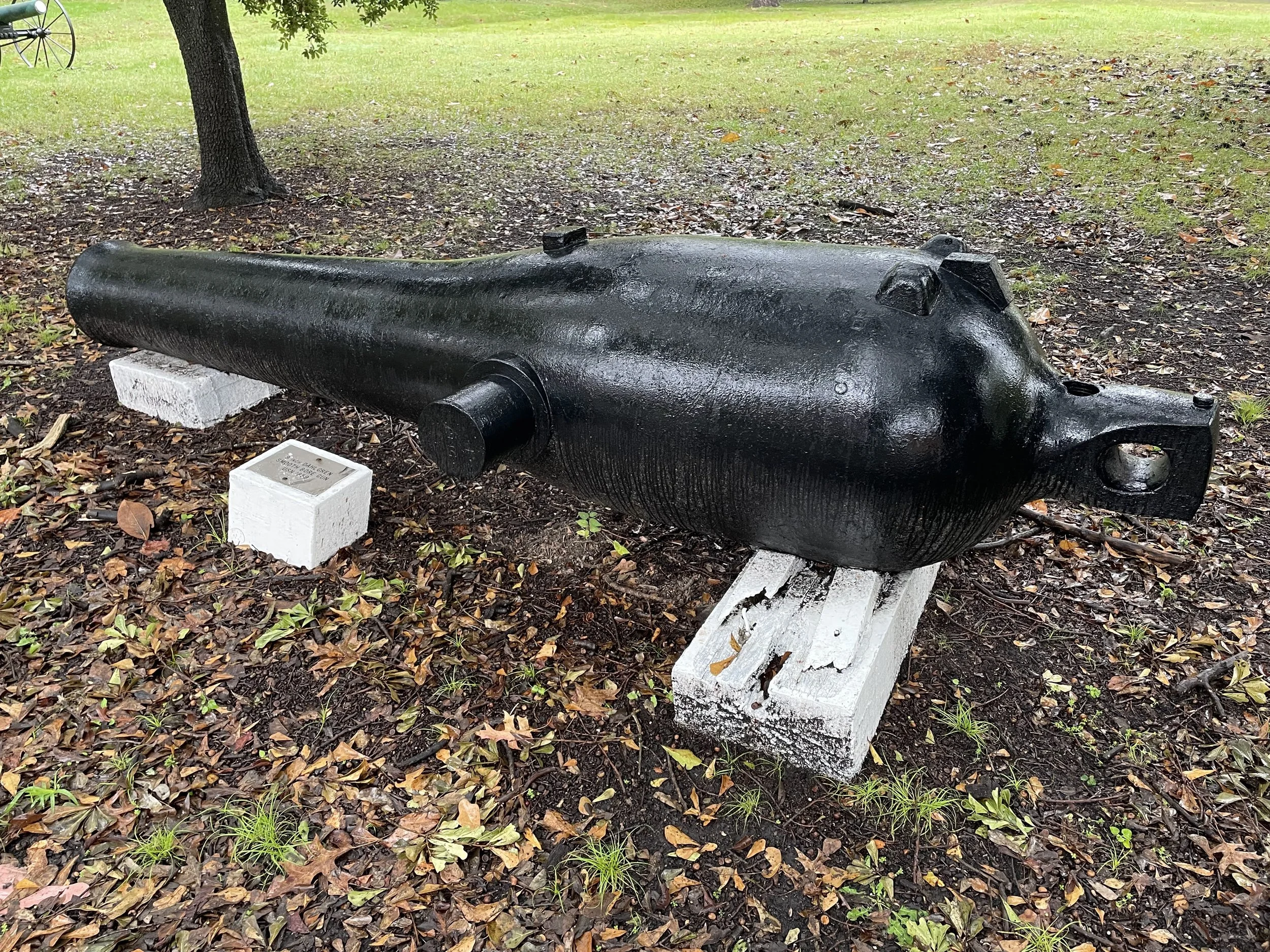
US Navy 9-Inch Dahlgren Number 242 at Trophy Park
US Navy 9-Inch Dahlgren Number 242 was manufactured by Cyrus Alger & Company in 1859. As manufactured it weighed 9,045 pounds. It served aboard USS Richmond from her commissioning until 1865. During this time it was fired 250 times. USS Richmond, of course, saw a very active career including at New Orleans, Vicksburg, and Mobile Bay. After 1872, it was mounted aboard USS Sabine.
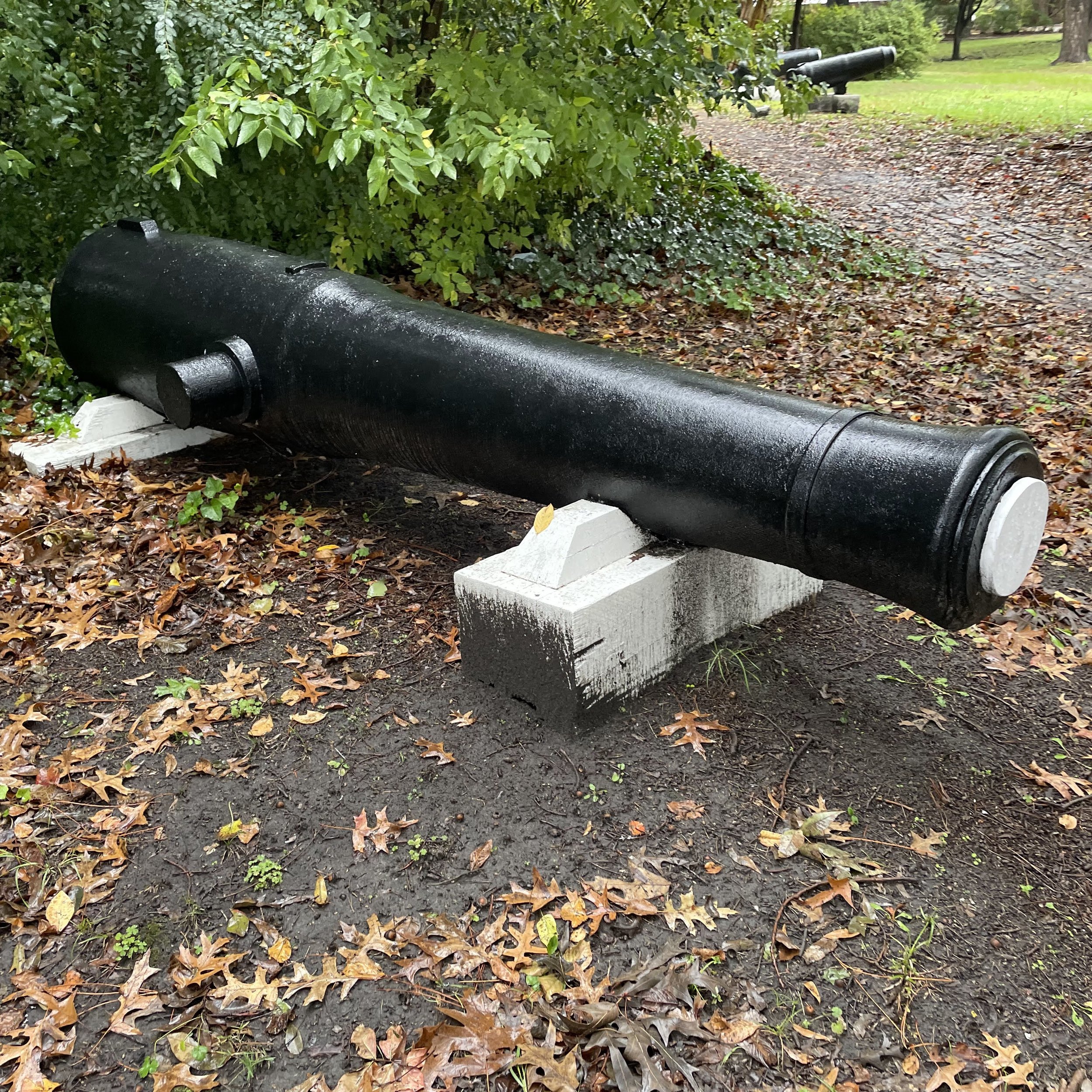
The 32-Pounder of USS St. Lawrence
US Navy 32-Pounder of 57 Hundredweight, Number 384, is displayed at Trophy Park at Norfolk Naval Shipyard. Number 384 was manufactured at Tredegar Foundry in Richmond, Virginia in 1848. According to the research of Wayne Stark, Number 384 was carried aboard the sailing frigate USS St. Lawrence.

The Rifled Boat Howitzers of Norfolk Naval Shipyard
Two US Navy 12-Pounder (3.4-Inch) Rifled Dahlgren Boat Howitzers are displayed near the 4th Street Entrance at Norfolk Naval Shipyard: Numbers 314 and 403. Two other rifled boat howitzers are nearby: Numbers 249 and 298.

US Navy 32-Pounder of 57 Hundredweight of USS Congress
US Navy 32-Pounder of 57 Hundredweight, Number 125, was carried aboard USS Congress - when she was sunk after surrendering to the ironclad CSS Virginia during the Battle of Hampton Roads in March 1862.
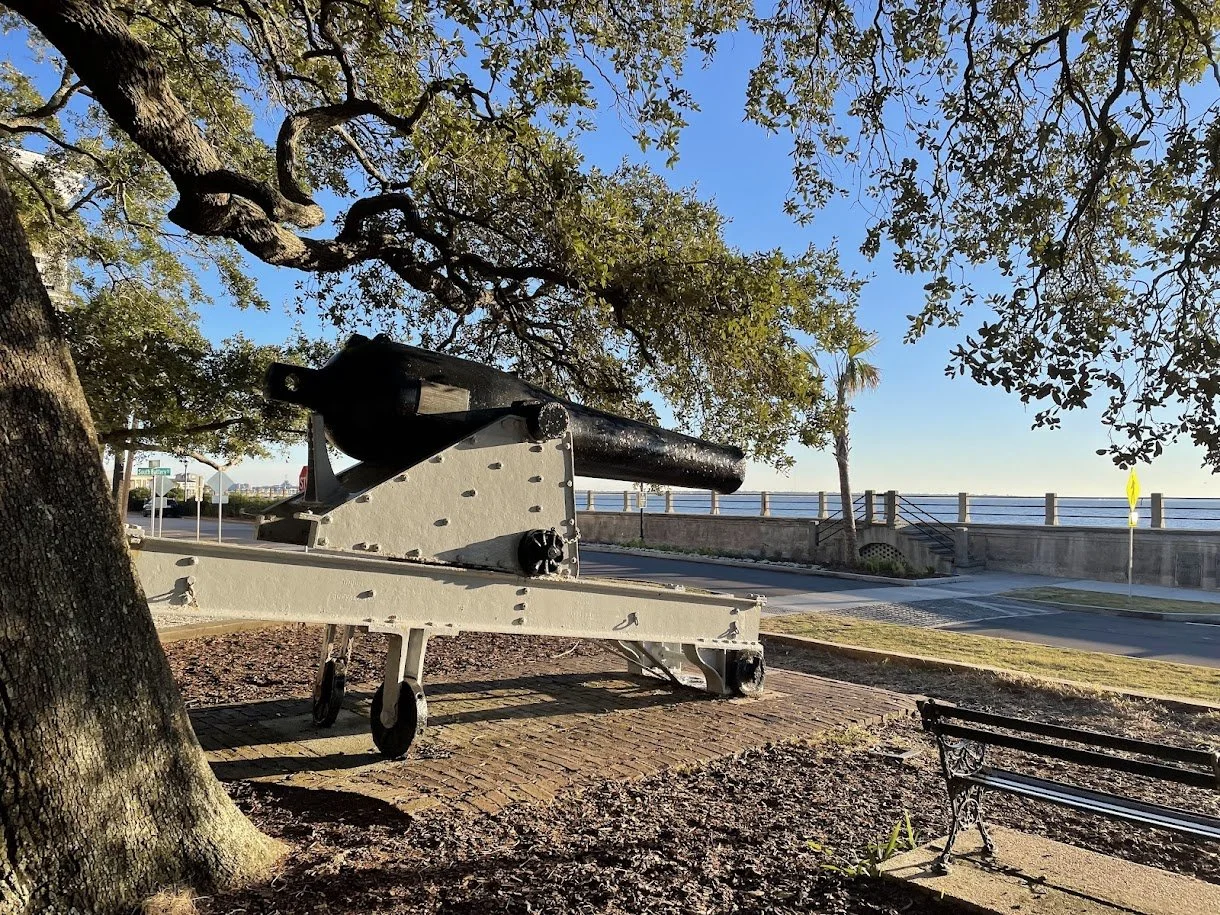
White Point Garden on New Years Day
White Point Garden (a.k.a. “The Battery”) in Charleston, South Carolina has a remarkable collection of heavy Civil War artillery. The city recently completed a multi-year construction project - giving an unfettered view of the guns for the first time in two years. I photographed the park on the morning of New Years Day, 2026.
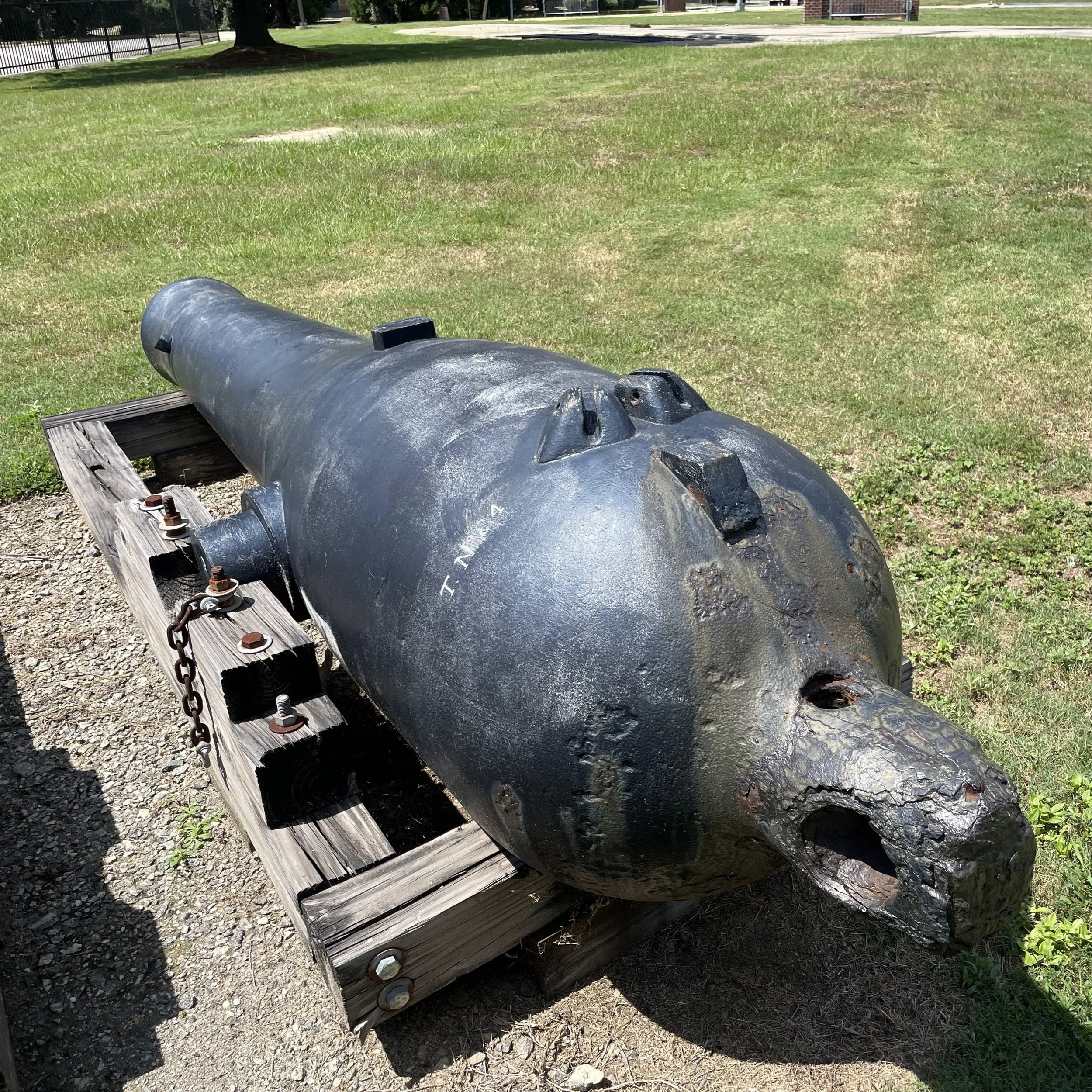
US Navy 9-Inch Dahlgren Number 34 of USS Wabash
US Navy 9-Inch Dahlgren Number 34 is one of five 9-Inch Dahlgrens displayed at the National Civil War Naval Museum in Columbus, Georgia. It was cast at Tredegar Foundry in Richmond, Virginia in 1855. Records indicate that it served aboard USS Wabash.

US Navy 32-Pounder of 42 Hundredweight Number 283
A US Navy 32-Pounder of 42 Hundredweight, Number 283, is displayed aboard USS Cairo at Vicksburg National Military Park. This cannon was cast in 1845 at the West Point Foundry. It is marked as weighing 42-1-11 Hundredweight (4,743 pounds). It was recovered in 1963 as preparatory work to recover the sunken USS Cairo in 1964.
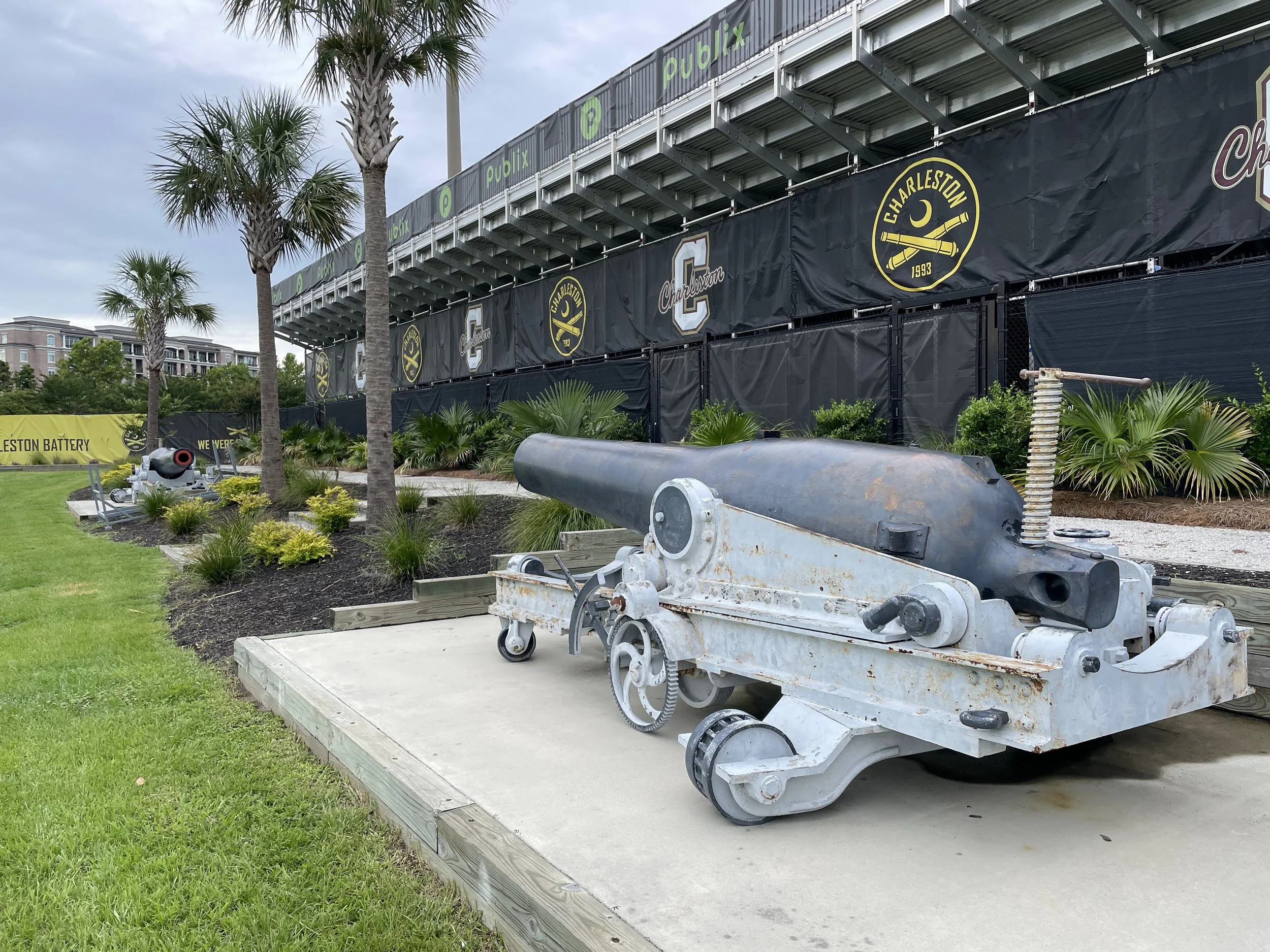
8-Inch Rifle Number 50 of USS Lancaster
US Navy 8-Inch Muzzle Loading Rifle Number 50 of USS Lancaster at Patriots Point Soccer Stadium in Mount Pleasant, South Carolina. This is one of four 8-Inch Rifles which were carried aboard USS Lancaster in the 1880s which are displayed at the stadium. Previously these 8-Inch MLR were displayed beside the aircraft carrier Yorktown. Before that they were at the Charleston Navy Yard.

8-Inch Number 48 of USS Lancaster
US Navy 8-Inch Muzzle Loading Rifle Number 45 of USS Lancaster at Patriots Point Soccer Stadium in Mount Pleasant, South Carolina. This is one of four 8-Inch Rifles which were carried aboard USS Lancaster in the 1880s which are displayed at the stadium. Previously these 8-Inch MLR were displayed beside the aircraft carrier Yorktown. Before that they were at the Charleston Navy Yard.

The Guns of USS Peterhoff at Fort Fisher
Four US Navy cannons recovered from the wreck of the Civil War ship USS Peterhoff are currently in storage awaiting future display at Fort Fisher State Historic Site. The four cannons include three types of 32-Pounder and a 30-Pounder Parrott Rifle.

US Navy 32-Pounder of 41 Hundredweight in Washington, North Carolina
A US Navy 32-Pounder of 41 Hundredweight which may have served on USS Cyane or USS Levant is displayed in Oakdale Cemetery in Washington, North Carolina

US Navy 30-Pounder Parrott of USS Cairo
A US Navy 30-Pounder Parrott Rifle, Number 61, is mounted aboard USS Cairo to fire over the stern. The 30-Pounder (4.2-Inch) Rifle was manufactured by West Point Foundry in 1862. As manufactured it weighed 3,460 pounds.

US Army 24-Pounder, Pattern 1845, in Vicksburg
A US Army 24-Pounder, Pattern 1845, is displayed on “Cannon Row” at Vicksburg National Military Park. This 24-Pounder was cast in 1853 at West Point Foundry. As manufactured it weighed 5,736 pounds. Like the earlier 24-Pounder, Pattern 1819, this type could be found in use both as a siege gun but also as a garrison gun and seacoast gun.
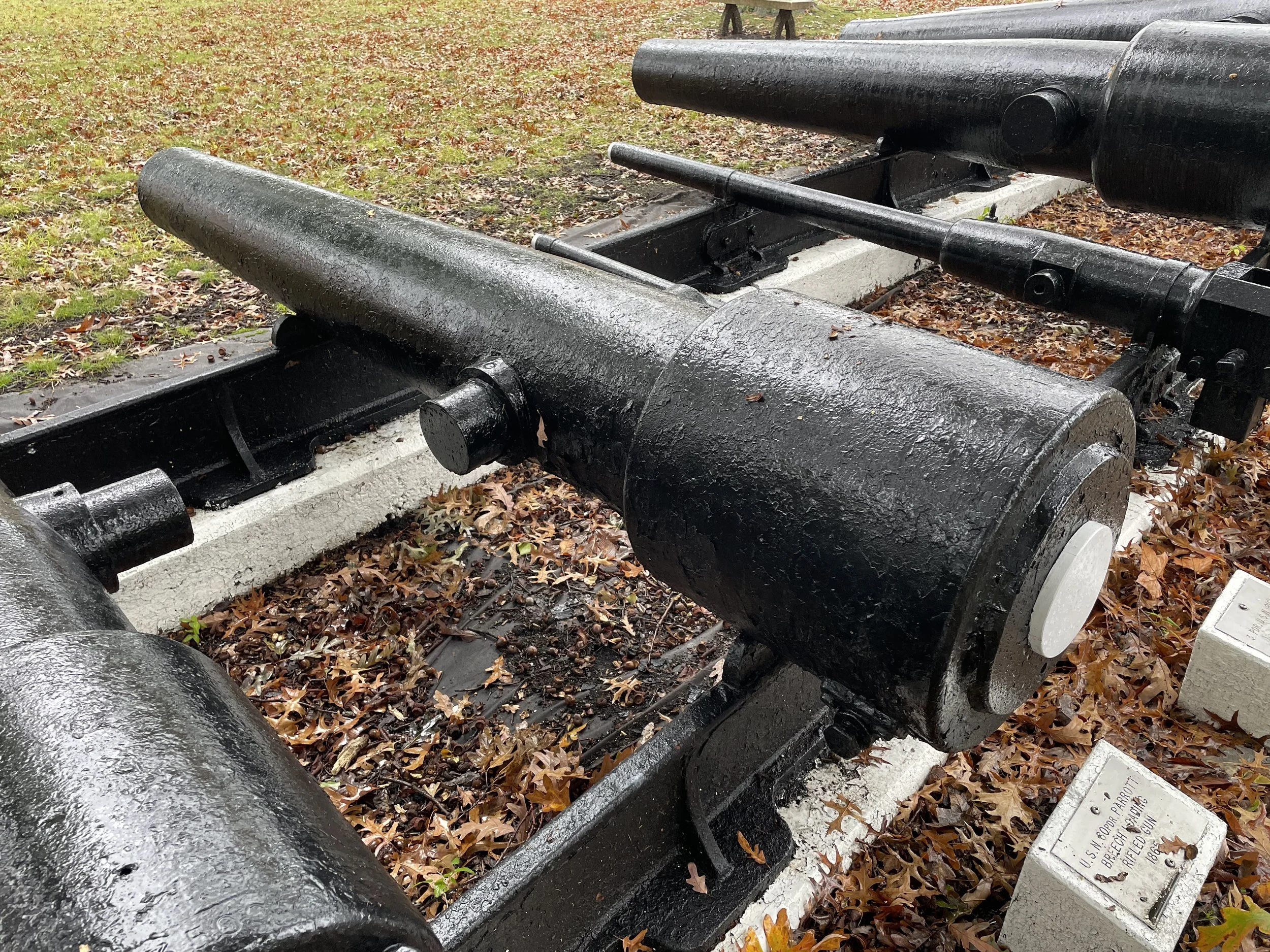
The 60-Pounder Breech Loader of USS Kearsarge
A US Navy 60-Pounder Breech Loader which served aboard USS Kearsarge from about 1880 to 1886 is displayed at Trophy Park at Norfolk Naval Shipyard in Portsmouth, Virginia. This gun was originally manufactured as a muzzle loading 60-Pounder (5.3-Inch) Parrott Rifle, Registry Number 61, at West Point Foundry in 1865.
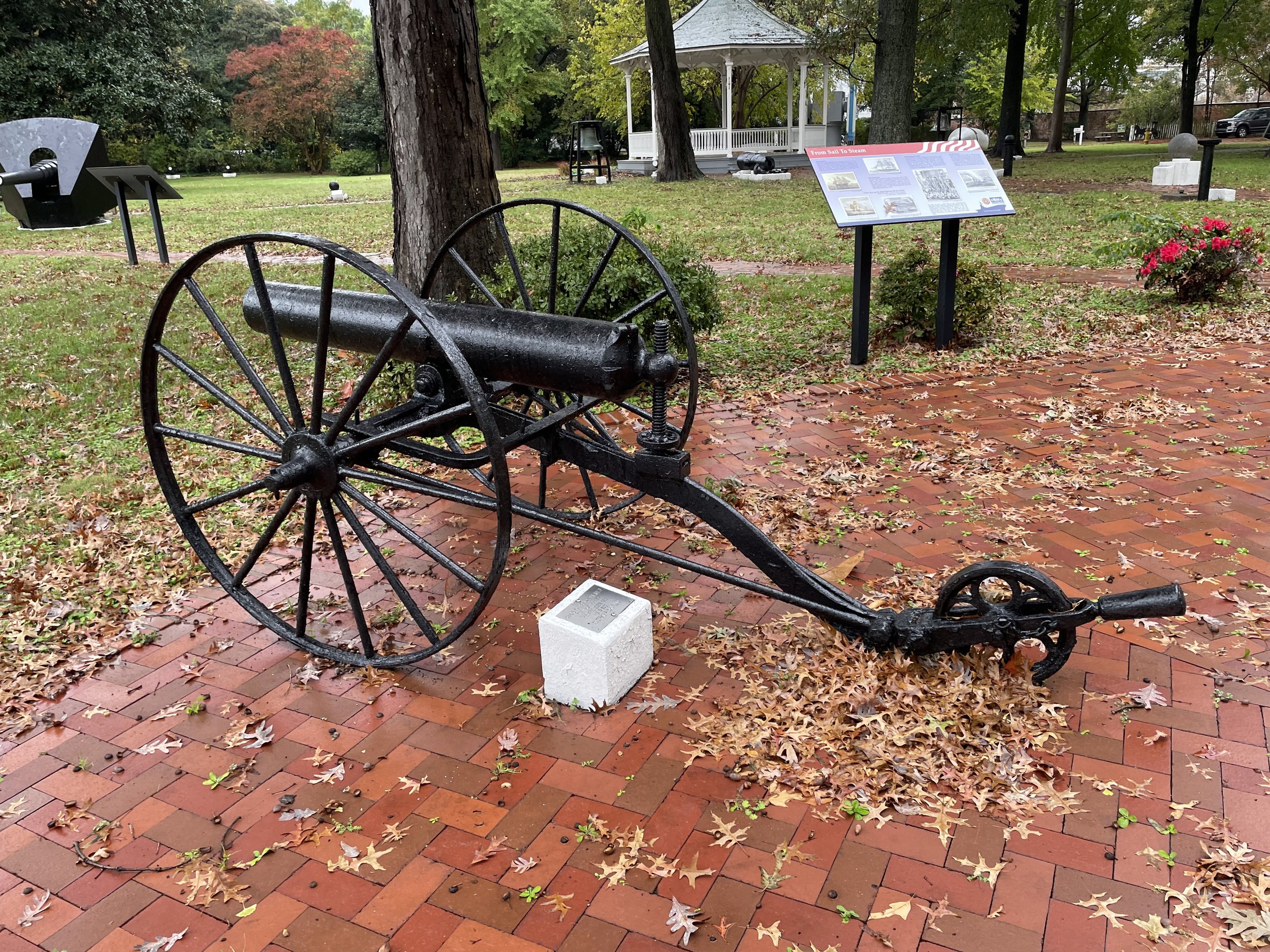
Rifled 12-Pounder Boat Howitzer (Steel) at Trophy Park
While most of Dahlgren's Boat Howitzers were made of bronze, twelve of his rifled 12-Pounder Boat Howitzers were made of steel. Three of these survive, with one, Number 298, being displayed on an original carriage at Trophy Park at Norfolk Naval Shipyard.